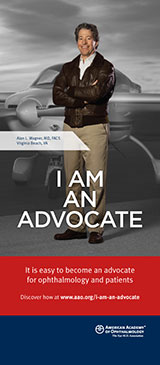 We take care of our families. We tend to strangers in need. We meet hundreds of new people every year, and offer advice. We coach, provide free services, volunteer. We don’t think twice about doing these things. These activities are natural for us. We are not super heroes. We act as advocates for multiple purposes, multiple times, every day of the year.
We take care of our families. We tend to strangers in need. We meet hundreds of new people every year, and offer advice. We coach, provide free services, volunteer. We don’t think twice about doing these things. These activities are natural for us. We are not super heroes. We act as advocates for multiple purposes, multiple times, every day of the year.
I am just like you. I, too, am an advocate.
When we walk into a patient’s room, we are comfortable with our tasks at hand. It’s familiar to us now, but when we started, it was daunting. All it took was the old school “see one, do one, teach one” to get us started.
The same was true when I started as an advocate for our patients and profession. When I was very young, I saw my parents, older brothers and their friends, knock on doors, make phone calls, and go on the radio to get people to vote. When I was a little older, I joined them with our elected officials at public rallies. It was there that I learned that our “leaders” were just like us. Our leaders had real jobs, real families and real problems. When they walked with us in the sun on a hot day, they got hot and thirsty just like I did. All in all, I learned that our elected officials were human, just like me. I could talk to them, and they would talk to me. The conversation mattered to both of us.
As a physician, with colleagues as mentors, I found myself comfortable walking the halls of the Capitol and meeting with our representatives. Now, I find that I'm the mentor, and it's as easy to do as walking into an examination room to see one of my patients.
Given today's governmental climate, if any of us think we aren’t involved in politics, it’s just not true. Whether it’s voting, talking in the surgeon’s lounge, watching TV or getting reimbursed by Medicare, we are engaged in the flow of the world’s events. The politics of the day affects us, and we respond.
Today, more than ever, our professional world is being determined by others outside of our beloved House of Medicine. Evolving legislation will greatly affect the practice of medicine. It is imperative that each of us reach out to all who will listen and communicate what matters to us and our patients. It just so happens occasionally that some who listen are also our elected representatives.
As I learned from others and by personal experience, the elected officials are just like us — they have their job to do and they want to learn about the issues. Just like in our exam lane, it’s the conversation that matters.
I was raised understanding that as a member of our community, I had a primary obligation — to make the world a better place, to “repair the world.” Not just by words, but by deeds. I learned through the kindness of others the fundamental “how to.” The results of our actions proved their value. My job is to pass on that obligation to others, as it is a gift. To me, that is what advocacy is all about. It's what drives me.
Please, help make the world for our families, community and patients a better place. Extend your advocacy to include speaking regularly with opinion makers and legislators about what our profession needs in order for us to continue to “repair the world.” Your individual action matters. You too are an advocate!
Alan L. Wagner, MD, is a retina specialist, assistant professor at Eastern Virginia Medical School, entrepreneur, consultant and aviator who is involved in governmental affairs and public policy.